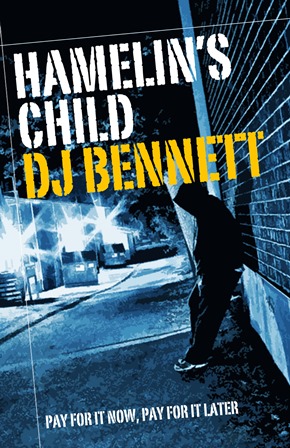So you want to publish an ebook?

You’ve written it, rewritten it, put in in a drawer (aka folder on your computer) and forgotten about it for a few weeks/months – while you start writing a new book. You’ve taken it out, re-read it, edited it again, engaged beta-readers and/or paid for a professional edit. You have an awesome cover sorted. You’re ready to hit the PUBLISH button, right?
But wait. Where are you going to publish this ebook?
On Amazon of course. That probably goes without saying. Readers can download the ebook straight to their kindle and start reading. The upload process at Amazon Kindle Direct Publishing (KDP) is relatively straightforward and not the subject of this post.
But what if your mum wants to read it? She’s got a Nook. And your best friend swears by her ipad. Somebody else has a Kobo from WH Smith. If you only publish your book on Amazon, how will they be able to read it?
They can probably find an app, or a way to convert the ebook – and if they love you enough, they probably will. But you’re not going to reach strangers with other e-readers, if you only publish on Amazon. When I first started out on just Amazon in early 2011, I was chatting with somebody in the day-job – he said he’d love to read my book, but he had a Sony e-reader. I lost a sale. I went home that night and started researching other ebook platforms…
Quick aside here: there are valid reasons for e-publishing only with Amazon. Amazon’s own KDP Select programme is one of them. In return for exclusivity, Amazon will give you extra features and perks of varying value, depending on your book and your plans for world-domination…
So what other options are there? Other platforms include Apple (ibooks available via itunes and the ibookstore), Kobo, Barnes & Noble (Nook). Less obvious markets include txtr, Flipkart, Oyster, Scribd, Google Play. Kobo itself distributes further down the line to smaller ebookstores worldwide. How do you get your ebook onto these sites? You want to be everywhere, don’t you?
Depending on where you live and what computer you use, you can access some of these sites yourself and upload your books directly; others will only deal with companies and bigger publishers, or insist you have a US bank account and tax ID. Some require you to have your own ISBNs (you can buy these in blocks from Neilsen in the UK, other countries have different arrangements). Each site will have its own upload process, payment method and terms & conditions. Each non-UK site may have different tax implications.
Alternatively, consider using an ebook aggregator. This is a site where you upload your ebook once in one format (often simply Microsoft Word) and it is converted into multiple ebook formats and distributed to multiple sites for you. The main contenders at the moment are Smashwords and Draft2Digital – both of these make no charge to host your book, but will take a percentage of your sales. Other aggregators such as Bookbaby, Ebook Partnership and Xin-Xii work slightly differently in that you pay a fee per book and get to keep more of the sales – they sometimes charge for changes and re-uploads too. The advantage of using an aggregator is that you have only one upload process and one set of t&c and tax implications to contend with! The disadvantage is that sometimes it can take a while for changes to filter through to all retail outlets – for example if you make a change or alter your price.
Other advantages of places like Smashwords is the ability to generate “coupons” – codes for free or discounted downloads. This is helpful if you want to send an ebook to a reviewer; you simply send them a link to your book and the code and they can download a copy in whatever format they like for review.
So – for the majority of independent writers, it’s Amazon KDP Select alone, or Amazon KDP (minus the Select option) plus an aggregator and maybe one or two direct-uploads.
Personally, I use Amazon KDP and Smashwords. Other than Amazon, most of my ebook sales come from Apple and Nook via Smashwords. I only have two sites to administer and upload to, and once the tax is sorted, payment arrives automatically (in my bank account from Amazon and my paypal account from Smashwords), leaving me free to concentrate on writing the next book!
Debbie Bennett tells lies and makes things up. Sometimes people pay her for it. She mostly writes dark and gritty crime thrillers and claims to get her inspiration from the day job – but if she told you about that, she’d have to kill you afterwards. Find out more on her website, Amazon UK and Smashwords. Follow her on Twitter here.
Comments